Skills in setting clear performance expectations, providing constructive feedback, and managing employee performance to achieve organisational objectives. Additionally, you’ll learn strategies for handling disciplinary issues, implementing fair and consistent disciplinary actions, and fostering a positive work environment while addressing performance challenges.
Learning about effective performance and discipline management is crucial for employers and managers as it contributes to the workforce’s overall success, productivity, and well-being. Effective performance and discipline management is crucial for creating a harmonious, productive, and engaged workforce. These management practices help align individual and team performance with organisational goals, address issues promptly and fairly, and foster a culture of continuous improvement and accountability.
Course Content
- Introduction.
- The basis of the relationship.
- Duties of an employee.
- Duties of employers.
- Discipline: an employer’s duty.
- Dismissal – the ultimate penalty.
- Substantive fairness.
- Procedural aspects.
- Types of rules.
- Disciplinary codes and procedures.
- Particular offences.
- Introduction.
- Minor offences – procedures.
- Introduction.
- The role of an initiator.
- Pre-hearing preparation.
- Investigating the facts of the incident.
- Determining the disciplinary route.
- Rules of evidence.
- Admissible evidence.
- Inadmissible evidence.
- Other examples of inadmissible evidence.
- Primary vs supporting evidence Formulating charges.
- Arranging a chairperson.
- he issue of representation.
- Preparing witnesses.
- Onus of proof.
- The disciplinary hearing procedure.
- Mitigating and aggravating statements.
- Appeal hearing.
- Role of initiator in appeals.
- Working on an appeal procedure.
- Roleplay.
- Differentiating between probation and employees that perform poorly.
- Substantive and procedural fairness.
- Informal and formal process.
- A practical guide for dealing with poor work performance.
- A practical guide for dealing with poor work performance.
- Step 1: Fact-gathering process.
- Step 2: Performance investigation.
- tep 3: Performance consultation.
- Step 4: Progress meetings.
- Step 5: Final performance review.
- Dealing with grievances.
- The grievance procedure.
- Stages in the grievance procedure.
- Guidelines for holding a grievance interview.
- Schedule 8 Code of Good Practice: Dismissal.
- Disciplinary Hearing Checklist.
- Disciplinary Report.
- Non-accredited: Short course only
- Duration: 1h 30m
- Delivery: Classroom/Online/Blended
- Access Period: 12 Months


